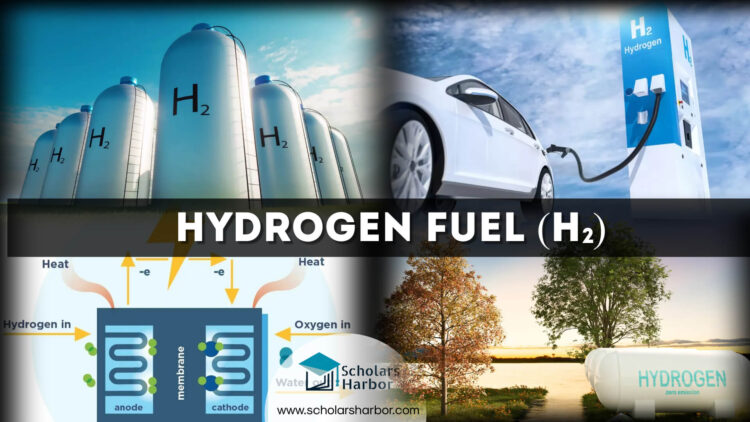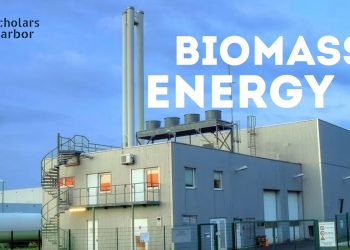Due to the quick depletion of fossil fuels, energy prices are increasing. To lessen the pollution emitted by those conventional fuels, it is vital to develop renewable and non-polluting energy sources. As a potential source of energy, scientists have identified hydrogen (H2).
Fossil fuels could be replaced by hydrogen, a potential non-carbon-based source of energy. As it might be produced from safe and environmentally friendly sources, hydrogen is seen as an alternative fuel.
Hydrogen is a clean fuel of energy that only creates water when consumed. Several domestic sources(energy), including oil & gas, bioenergy, nuclear energy and green energy sources like solar & wind, can be used to manufacture hydrogen. Energy can also be transported, delivered and stored using hydrogen.
Why hydrogen?
Hydrogen is a plentiful and naturally light weight atom that is present as chemical compounds like water. Compared to traditional fossil fuels, it has an enormous amount of energy. And relatively minimum bond energy is required to break a reversible hydrocarbon bond, which results in relatively less energy being needed to extract hydrogen from its chemical compounds.
Hydrogen production
In order to use H2 energy in daily life, it is essential to produce hydrogen from affordable and renewable sources. The following section discusses some of the several sources of H2 generation.
1. Production of hydrogen from water
Water can be converted into hydrogen through a number of processes, including electrolysis, heat, chemical, & photo-chemical reactions. Solar radiation is a dependable power source that may be used in 2 distinct ways to produce power (PV and solar heat). PV-generated energy is frequently used to drive an electrolyzer that separates water into hydrogen and oxygen.
2. Production of Hydrogen from glycerol
When vegetable oils are trans esterified to create biodiesel, a significant amount of glycerol is created as a result. Glycerol is an inexpensive byproduct made from sustainable raw materials. For every 9 kg of biodiesel, approximately one kg of glycerol is produced as a byproduct. In the presence of a nickel catalyst, this hydrogen is created from glycerol in steam reforming.
3. Production of hydrogen from biomass
Hydrogen production through fermentation is an innovative and potential way to use biomass. In this procedure, bacteria and other microbes break down organic material to create hydrogen. Hydrogen can also be produced from biomass gasification. Using heat, steam, and oxygen, biomass is transformed into hydrogen and other compounds without burning.
4. Production of hydrogen from Urea
For the production of hydrogen, urea can be used as a raw material. It is possible to produce hydrogen using an electrochemical oxidation of urea in alkaline media, along with other essential byproducts like nitrogen and pure water.
5. Production of hydrogen from organic materials
According to some experts, electrohydrogenesis is a good process of generating hydrogen from organic compounds. In the process microbes oxidise organic matter to produce protons and electrons, which are then reduced to produce hydrogen gas.
Hydrogen Storage
Due to its numerous uses in everything from stationary & portable energy to transport hydrogen storage is important. Some of the hydrogen storage are given below.
- Compressed hydrogen storage tan
- Liquid hydrogen storage tank
- Metal hydride hydrogen storage
- Chemical hydrogen storage
- Material based hydrogen storage
Applications
Hydrogen is crucial to our energy strategy since it has the ability to be used in almost every area, including transport, business, manufacturing, domestic, and portable. Some of the hydrogen applications are given below.
Fuel cell
Due to its great efficiency, minimal noise, and few moving parts, fuel cells are the most attractive choice for converting hydrogen energy into electrical power.
Vehicles
Due to its capacity to run the vehicle with negligible emission, hydrogen is seen as an alternative car fuel. The efficiency of a hydrogen fuel could be two to three times higher than that of a gasoline-powered internal combustion engine.
Industrial processes
Industry uses hydrogen to refine oil, purify metals, create fertilizer, and process food. Hydrogen is typically used in oil refining to reduce the Sulphur level of fuels.
Cite this Article
| Author: | Scholars Harbor |
| Year: | 2022 |
| Title | All about Hydrogen Fuel? – Production, Storage & Its Applications Explained |
| Publisher: | Scholars Harbor |
| URL: | https://scholarsharbor.com/all-about-hydrogen-fuel-production-storage-its-applications-explained/ |










Discussion about this post